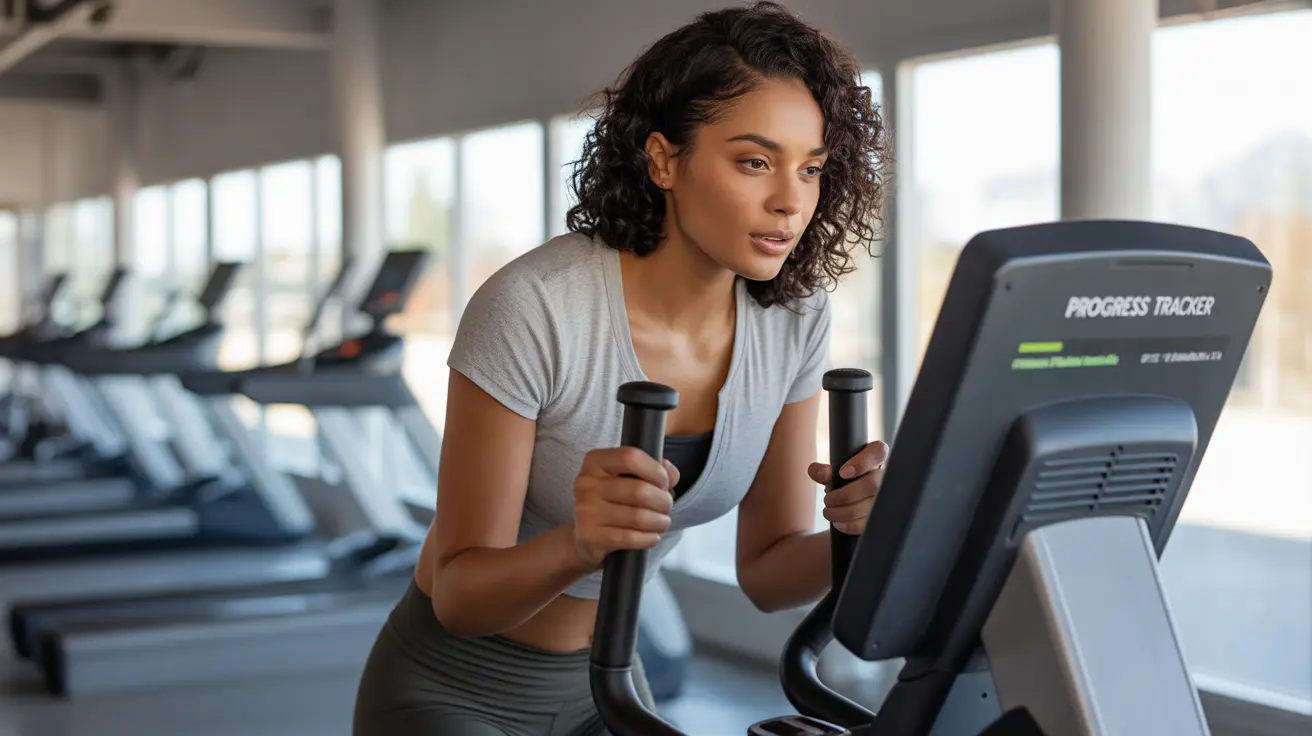For individuals concerned about their knee health or managing knee conditions, choosing the right exercise equipment is crucial. The elliptical machine has gained popularity as a potentially knee-friendly cardio option, but understanding its benefits and proper usage is essential for protecting your joints while staying active.
In this comprehensive guide, we'll explore how elliptical workouts can benefit your knees, compare them to other exercise options, and provide expert guidance on using this equipment safely and effectively.
Understanding the Impact of Elliptical Training on Knee Health
The elliptical machine offers several unique advantages for knee health. Its design creates a smooth, fluid motion that minimizes impact on your joints while still providing an effective cardiovascular workout. Unlike running or jogging, where each step creates significant ground impact, the elliptical keeps your feet in contact with the pedals throughout the entire movement.
Low-Impact Benefits for Joint Protection
The elliptical's low-impact nature makes it particularly beneficial for individuals with knee concerns. The machine supports your body weight while allowing natural movement patterns that can help maintain joint mobility without excessive stress. This makes it an excellent option for those with knee osteoarthritis, recovering from injury, or simply looking to protect their joints during exercise.
Muscle Engagement and Joint Support
Regular elliptical use engages multiple muscle groups that support knee function. The quadriceps, hamstrings, and calf muscles all work together during the exercise, helping to strengthen the support structure around your knees. This improved muscle strength can lead to better joint stability and reduced stress on the knee joints during daily activities.
Customization for Individual Needs
One of the most valuable features of elliptical machines is their adjustability. Users can modify resistance levels, incline settings, and stride length to create a workout that matches their fitness level and joint comfort. This customization allows for progressive strengthening while maintaining joint protection.
Safe Usage Guidelines for Knee Protection
To maximize benefits and minimize risks when using an elliptical, proper form and technique are essential. Keep your feet flat on the pedals, maintain an upright posture, and avoid locking your knees during the movement. Start with shorter sessions at lower resistance levels, gradually increasing duration and intensity as your strength and endurance improve.
When to Exercise Caution
While elliptical machines are generally knee-friendly, certain conditions may require additional precautions. Those with acute knee injuries, severe osteoarthritis, or recent knee surgery should consult their healthcare provider before starting an elliptical routine. Listen to your body and adjust or stop if you experience pain beyond mild muscle fatigue.
Frequently Asked Questions
Is using an elliptical machine better for my knees than a treadmill if I have knee osteoarthritis?
Yes, an elliptical machine is generally better for knees affected by osteoarthritis compared to a treadmill. The elliptical's low-impact design eliminates the repetitive shock of foot strikes that occurs during treadmill walking or running, while still providing effective cardiovascular exercise and muscle strengthening benefits.
How does elliptical exercise help reduce knee pain and improve joint function?
Elliptical exercise helps reduce knee pain by promoting fluid movement without impact stress. The continuous motion helps lubricate joint tissues, strengthen supporting muscles, and improve range of motion. Regular use can enhance joint function through controlled movement patterns that maintain mobility while building strength.
What precautions should I take when using an elliptical to protect my knees?
Maintain proper form with feet flat on pedals, avoid locking your knees, start with low resistance and duration, and gradually increase intensity. Stop if you experience pain beyond mild discomfort, and ensure proper machine setup for your height and stride length.
Can elliptical workouts strengthen the muscles around my knees to support joint health?
Yes, elliptical workouts effectively strengthen the muscles surrounding the knees, including quadriceps, hamstrings, and calves. This improved muscle strength provides better joint stability and support, potentially reducing knee pain and improving overall joint function.
How do I choose the right elliptical workout intensity and resistance for knee osteoarthritis?
Start with low resistance and short sessions (10-15 minutes), focusing on smooth, controlled movements. Gradually increase duration and resistance based on your comfort level. Maintain a pace where you can hold a conversation, and avoid settings that cause knee pain or discomfort.




